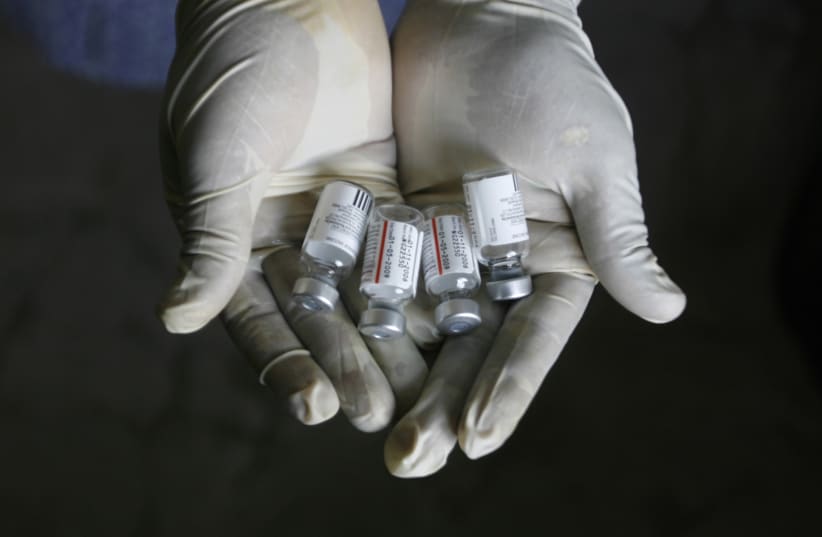The study, known as HVTN 702, built on results from the 2009 RV144 vaccine trial in Thailand, which was the first to show it was possible to prevent HIV infection in humans. In that study, the vaccine cut the rate of HIV infections by 30% compared with people who got a placebo.
"It is very disappointing that this vaccine candidate does not work, but the trial was well-conducted and got an answer as quickly as possible," Mitchell Warren, executive director of AVAC, an HIV prevention advocacy group, said in a statement.
Despite the discovery of effective treatments that can put the virus in remission, experts say an HIV vaccine is critical to eradicating the virus that causes AIDS, which has infected 75 million people and killed 37.9 million globally as of 2018.
"An HIV vaccine is essential to end the global pandemic, and we hoped this vaccine candidate would work. Regrettably, it does not," said Dr. Anthony Fauci, director of the National Institute of Allergy and Infectious Diseases (NIAID), which sponsored the study.
"Research continues on other approaches to a safe and effective HIV vaccine, which I still believe can be achieved," Fauci said in a statement.
The regimen tested in the HVTN 702 trial was adapted to target the specific subtype of HIV most prevalent in Southern Africa, known as Clade C. It consisted of two vaccines - one made from GlaxoSmithKline and one from Sanofi.
The study enrolled 5,407 HIV-negative volunteers at 14 sites across South Africa. Study volunteers were sexually active men and women ages 18 to 35. They were randomly assigned to receive either the experimental vaccine regimen or a placebo. They received six shots over a period of 18 months.
Late last month, a safety board conducted an interim analysis from 2,694 study participants who got the vaccine and 2,689 volunteers who got the placebo, and found the vaccine was not effective at preventing HIV infections. Based on these findings, the NIAID stopped the trial.
The NIAID has two other late-stage HIV vaccine trials underway called Imbokodo and Mosaico. Both are testing a novel vaccine developed by Johnson & Johnson. The end of the HVTN 702 trial (also known as Uhambo) does not affect these studies or any other HIV prevention efficacy trials taking place globally, Warren said.CURRENT MEDICATIONS on the market can help contain the virus, however, there is no cure all vaccine available today for patients with HIV.Antiretroviral treatment therapy, for those already infected with HIV, is an effective method of decreasing the amount of HIV cells from multiplying within the body and in many cases successfully prevents its carrier from passing on the auto-immune infection to any other hosts - either through sexual contact, injection drug use or the exchange of body fluids.The treatment called pre-exposure prophylaxis (PrEP), is a therapy for those who recently contracted HIV to prevent the virus from establishing a permanent or overwhelming infection within the body - or to progress into the latter stages of the infection, referred to as AIDS.As a daily dose, PrEP is exceedingly effective in preventing the spread of HIV. Studies have shown that it reduces the risk from spreading the infection from sex by about 99% when taken daily, according to the Center for Disease Control. It is much less effective if the patient does not receive or use the medication daily.The recent discoveries in antiretrovial therapy have significantly improved the lifespans of HIV patients.In countries where these treatments remain unavailable, the only effective prevention method against spread are the use of condoms or become abstinent, and HIV infection will inevitably multiply and overrun the white blood cell counts within these carriers putting them at risk to other serious infections and some forms of cancer."Through regular testing, condoms, Prep and effective treatment which means people living with HIV can't pass on the virus - we now have a once-in-a-generation opportunity to end the HIV epidemic. It's vital we seize this," Head of Policy at Terrence Higgins Trust Debbie Laycock said, according to the BBC.
